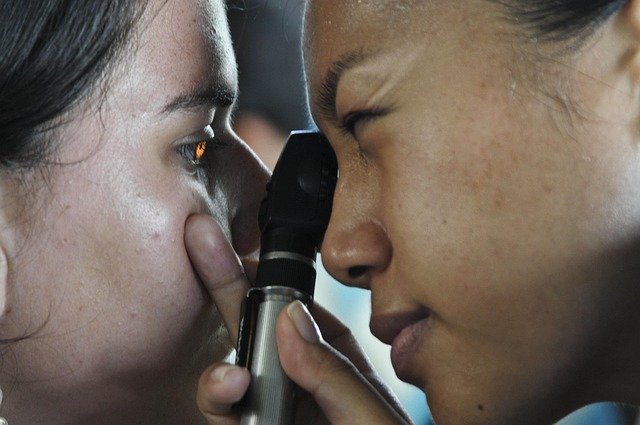Early Breast Cancer Detection Can Be Life-Saving - Know the Warning Signs:
Early detection of breast cancer significantly improves treatment outcomes and survival rates. Many women are unaware of important warning signs beyond lumps, including skin changes, nipple discharge, and breast asymmetry. Regular self-examinations help identify potential concerns when treatment options are most effective

What are the common warning signs of breast cancer?
Recognizing the early warning signs of breast cancer is essential for timely intervention. While a lump in the breast is the most well-known symptom, there are several other indicators that women should be aware of:
-
Changes in breast size or shape
-
Skin dimpling or puckering
-
Nipple inversion or changes in direction
-
Nipple discharge, especially if bloody
-
Redness, swelling, or warmth in the breast
-
Persistent pain in a specific area of the breast
-
Changes in the skin texture, such as roughness or scaly patches
-
Swelling in the armpit or collarbone area
It’s important to note that these symptoms don’t necessarily indicate cancer, but they warrant a prompt medical evaluation.
Why is early detection so crucial for breast cancer treatment?
Early detection of breast cancer significantly improves treatment outcomes and survival rates. When breast cancer is diagnosed at an early stage, treatment options are often less invasive and more effective. Some key benefits of early detection include:
-
Increased treatment success rates
-
More conservative surgical options
-
Reduced need for chemotherapy in some cases
-
Lower risk of cancer spreading to other parts of the body
-
Improved quality of life during and after treatment
-
Higher overall survival rates
Regular screenings, including mammograms and clinical breast exams, combined with self-awareness, form the foundation of early detection efforts.
How can I access an Oncology Specialist Directory?
If you’ve noticed any concerning symptoms or received a breast cancer diagnosis, consulting with an oncology specialist is crucial. An Oncology Specialist Directory can help you find qualified professionals in your area. These directories typically provide information such as:
-
Oncologists’ specialties and areas of expertise
-
Board certifications and qualifications
-
Hospital affiliations and practice locations
-
Patient reviews and ratings
-
Contact information and appointment scheduling options
Many cancer centers, hospitals, and national cancer organizations offer online directories to help patients find suitable oncologists. Additionally, your primary care physician can often provide referrals to trusted specialists in your area.
What does a comprehensive Treatment Options Guide include?
A Treatment Options Guide is an invaluable resource for patients navigating breast cancer care. These guides typically cover a wide range of topics, including:
-
Surgery options (lumpectomy, mastectomy, reconstruction)
-
Radiation therapy techniques
-
Chemotherapy protocols
-
Hormone therapy options
-
Targeted therapies and immunotherapies
-
Complementary and alternative treatments
-
Clinical trial opportunities
-
Side effect management strategies
-
Follow-up care and survivorship planning
A well-structured Treatment Options Guide helps patients make informed decisions in collaboration with their healthcare team, ensuring personalized care that aligns with their individual needs and preferences.
How can I find reliable Clinical Trial Information?
Clinical trials play a crucial role in advancing breast cancer treatment. For patients interested in participating in clinical trials, accessing reliable information is essential. Here are some ways to find trustworthy Clinical Trial Information:
-
National Cancer Institute’s clinical trial database
-
ClinicalTrials.gov website
-
Cancer research organizations and foundations
-
Major cancer centers and academic medical institutions
-
Patient advocacy groups specializing in breast cancer
When exploring clinical trial options, it’s important to discuss the potential benefits and risks with your oncology team. They can help determine if a particular trial is suitable for your specific situation and guide you through the enrollment process.
What resources are available for Insurance Coverage Help and Support Resources Access?
Navigating the financial aspects of breast cancer treatment can be challenging. Fortunately, there are resources available to help patients understand their insurance coverage and access additional support:
-
Hospital financial counselors
-
Cancer organization helplines
-
Patient advocacy groups
-
Social workers specializing in oncology
-
State and federal assistance programs
-
Nonprofit organizations offering financial aid
-
Pharmaceutical company patient assistance programs
These resources can provide guidance on insurance coverage, help with understanding medical bills, and offer information on financial assistance programs. Additionally, many organizations provide access to support groups, counseling services, and educational resources to help patients and their families cope with the emotional and practical challenges of breast cancer treatment.
Breast cancer treatment has evolved significantly in recent years, offering improved outcomes and quality of life for patients. By staying informed about warning signs, embracing early detection methods, and utilizing available resources, individuals can take proactive steps in their breast health journey. Remember, while this information serves as a guide, it’s crucial to consult with healthcare professionals for personalized advice and care.
This article is for informational purposes only and should not be considered medical advice. Please consult a qualified healthcare professional for personalized guidance and treatment.




